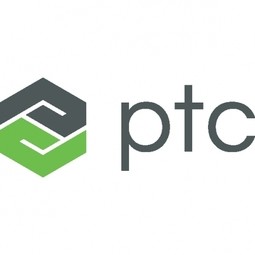How Metso implemented Service Parts Management (SPM) in the Cloud to unearth value from its global supply chain

Customer Company Size
Large Corporate
Region
- Europe
Country
- Finland
Product
- PTC’s Service Parts Management (SPM)
- Multi Echelon Optimization
- PTC Cloud Services
Tech Stack
- Cloud Computing
- ERP Integration
- Inventory Management System
Implementation Scale
- Enterprise-wide Deployment
Impact Metrics
- Cost Savings
- Productivity Improvements
Technology Category
- Platform as a Service (PaaS) - Data Management Platforms
- Infrastructure as a Service (IaaS) - Cloud Computing
Applicable Industries
- Mining
- Oil & Gas
- Recycling & Waste Management
Applicable Functions
- Logistics & Transportation
- Procurement
Use Cases
- Supply Chain Visibility
- Inventory Management
- Demand Planning & Forecasting
Services
- Cloud Planning, Design & Implementation Services
- System Integration
About The Customer
Metso is a world-leading industrial company serving the mining, aggregates, recycling, oil, gas, pulp, paper, and process industries. The company is headquartered in Helsinki, Finland, and reported net sales of EUR 2.6 billion in 2016. Metso operates a global network of over 80 service centers, services professionals, and employs over 11,000 people in more than 50 countries. The company's operations are spread across 39 locations, each of which used a global inventory management system. However, the inventory at each location was managed independently and isolated from the inventory in the entire Metso supply chain.
The Challenge
Metso, a world-leading industrial company, was facing challenges with its global supply chain. The company was using a location-based, on-shelf availability model, which resulted in isolated and independently managed inventories across its 39 locations. This approach was inefficient and reduced Metso's ability to serve its customers effectively. The company also had to manage intricate material flows, making it difficult to predict part lead time. Furthermore, the constraints of a legacy system and a focus on individual supply issues rather than broader strategic improvements were hindering Metso's growth and profitability. The company needed a solution that could match its complicated network and grow with its business.
The Solution
Metso adopted PTC’s Service Parts Management (SPM) with Multi Echelon Optimization to manage its global supply chain more efficiently. The solution allowed Metso to move from a location-based planning to planning the supply chain as a whole. The implementation of SPM started with a pilot phase in June 2014. During the initial months, Metso's cost of inventory increased as the system evaluated product mix and procured the optimal inventory levels. However, once the right parts were procured in the right locations, inventory stopped increasing and started to go down. The design, build, and implementation of the project took place over nine months, with a highly focused project team dedicated to the launch. Much of the team’s focus was on change management and master data as the go-live would be simultaneous in all the 39 locations. SPM was integrated into Metso's global SAP, improving efficiency.
Operational Impact
Quantitative Benefit

Case Study missing?
Start adding your own!
Register with your work email and create a new case study profile for your business.
Related Case Studies.

Case Study
Taking Oil and Gas Exploration to the Next Level
DownUnder GeoSolutions (DUG) wanted to increase computing performance by 5 to 10 times to improve seismic processing. The solution must build on current architecture software investments without sacrificing existing software and scale computing without scaling IT infrastructure costs.

Case Study
Remote Wellhead Monitoring
Each wellhead was equipped with various sensors and meters that needed to be monitored and controlled from a central HMI, often miles away from the assets in the field. Redundant solar and wind generators were installed at each wellhead to support the electrical needs of the pumpstations, temperature meters, cameras, and cellular modules. In addition to asset management and remote control capabilities, data logging for remote surveillance and alarm notifications was a key demand from the customer. Terra Ferma’s solution needed to be power efficient, reliable, and capable of supporting high-bandwidth data-feeds. They needed a multi-link cellular connection to a central server that sustained reliable and redundant monitoring and control of flow meters, temperature sensors, power supply, and event-logging; including video and image files. This open-standard network needed to interface with the existing SCADA and proprietary network management software.

Case Study
Refinery Saves Over $700,000 with Smart Wireless
One of the largest petroleum refineries in the world is equipped to refine various types of crude oil and manufacture various grades of fuel from motor gasoline to Aviation Turbine Fuel. Due to wear and tear, eight hydrogen valves in each refinery were leaking, and each cost $1800 per ton of hydrogen vented. The plant also had leakage on nearly 30 flare control hydrocarbon valves. The refinery wanted a continuous, online monitoring system that could catch leaks early, minimize hydrogen and hydrocarbon production losses, and improve safety for maintenance.





